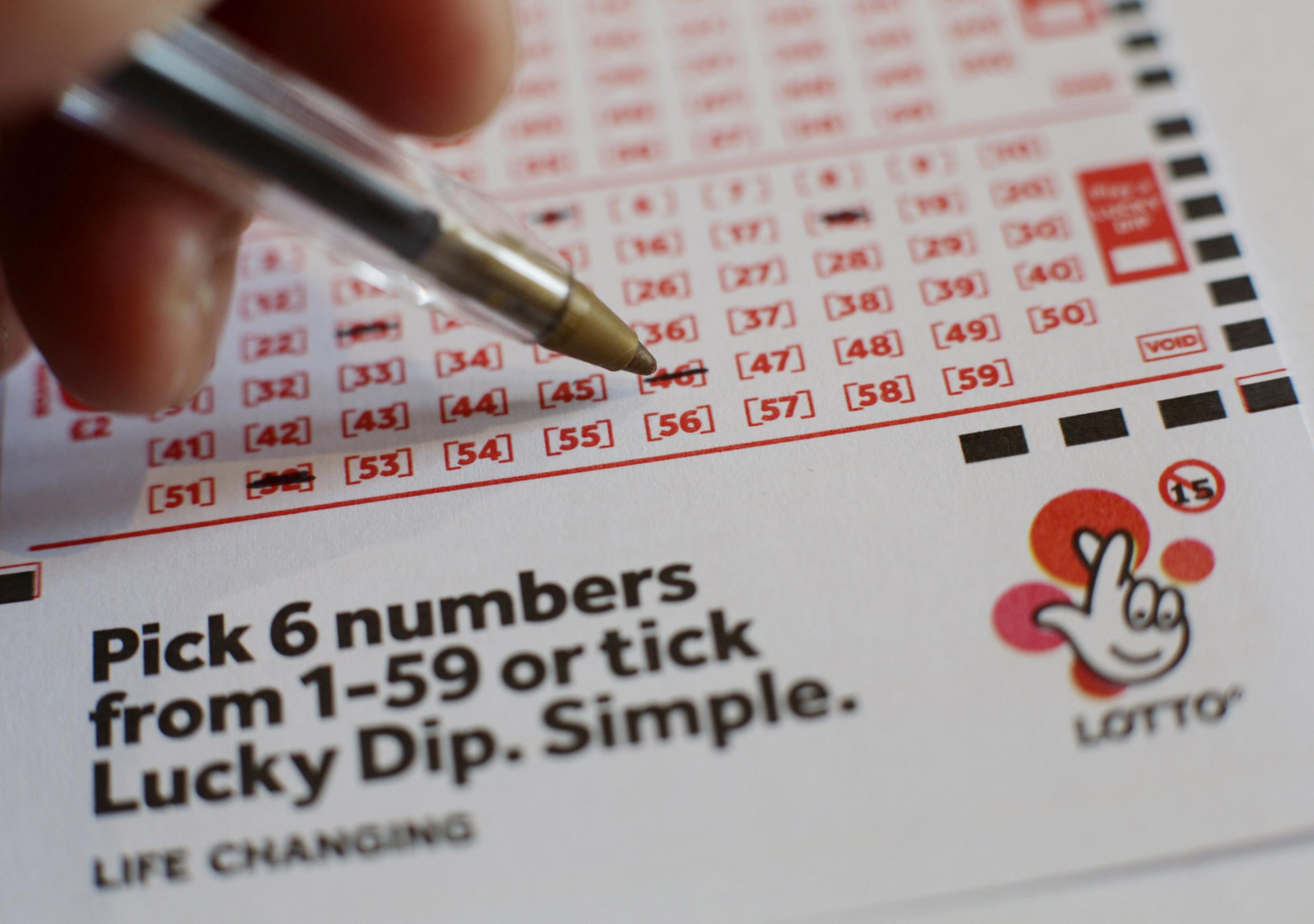Government could ban 16 and 17-year-olds from buying scratchcards and lottery tickets, minister announces
Consultation launched on increasing minimum age for all National Lottery games from 16 to 18, but Mims Davies says her 'initial view' is hike should apply to instant-win games only
Your support helps us to tell the story
From reproductive rights to climate change to Big Tech, The Independent is on the ground when the story is developing. Whether it's investigating the financials of Elon Musk's pro-Trump PAC or producing our latest documentary, 'The A Word', which shines a light on the American women fighting for reproductive rights, we know how important it is to parse out the facts from the messaging.
At such a critical moment in US history, we need reporters on the ground. Your donation allows us to keep sending journalists to speak to both sides of the story.
The Independent is trusted by Americans across the entire political spectrum. And unlike many other quality news outlets, we choose not to lock Americans out of our reporting and analysis with paywalls. We believe quality journalism should be available to everyone, paid for by those who can afford it.
Your support makes all the difference.Sixteen and seventeen year-olds look set to be banned from buying scratchcards and could be barred from taking part in the twice-weekly Lotto draws, a minister has announced.
Civil society minister Mims Davies launched a consultation on increasing the minimum age limit for all National Lottery games to 18 from 2020, to bring it in line with the generally recognised age of adulthood.
But she told MPs that her "initial view" was that it would be better to raise the age limit only for instant-win games like scratchcards, which presented a bigger risk of harm to young players.
Ms Davies said she would consult with Lottery operator Camelot and retailers on the likely impact on their business before making a final decision on the age limit.
But Labour - backed by some Tory backbenchers - said she should act immediately.
Shadow culture secretary Tom Watson said that scratchcards were a "gateway" for many teenagers to join the 450,000 children known to be gambling each week in the UK.
He told the minister: "There is absolutely no need for a consultation on this issue. We already have all the evidence we need. To gamble you should be an adult, so the minimum age for all gambling products should be 18 - it's as simple as that."
And former Tory leader Iain Duncan Smith said: "There is no need for a consultation about the age limit. Frankly, I think we should just get on with it. There's enough evidence out there."
Ms Davies told the Commons said that the current minimum age of 16 for taking part in lotteries was one of very few limits to be set below the "widely recognised" threshold of 18 for taking on adult rights and responsibilities.

She said the consultation would consider the options of keeping the age limit at 16, imposing an outright ban on playing any National Lottery game below 18 or a "differentiated approach" that would increase the minimum age only for instant-win scratchcards and online games.
"My initial view based on the evidence reviewed so far, is that such a split could be the best approach," she told MPs. "This takes into account that the risk of harm associated with playing the National Lottery is at the lowest of any form of gambling.
"But we do know the risk of harm is slightly higher for instant-win games than it is for draw-based games such as Lotto.
"Therefore, I am keen to seek further evidence in this area and hear what others think, given that the National Lottery matters so much to so many people."
Mr Watson said: " There are 450,000 children gambling every week in our country. It is a number that has quadrupled in recent years.
"For many young people, scratchcards are a gateway to gambling from the age of 16. We don't think that's right, particularly when we are struggling with an epidemic of gambling addiction across the country."
Ms Davies also announced plans to increase from £400,000 to £500,000 the maximum prize in draws run by "society lotteries" for good causes like sports clubs, hospitals and charities.
The good-cause lotteries’ annual sales limit will also be increased to £50 million.
Ms Davies said she expected legislation on the lottery age-limit in the autumn, in order to have a clear position in place before the bidding process for the next National Lottery licence gets under way in 2020.
Camelot said it had "no issue" with the review of the age limit, but was "extremely disappointed" by the increase in prize and sales limits for society lotteries which operate on a national scale and compete with its products.
"This will have a further negative impact on returns to National Lottery good causes and society," said a spokesperson.
"The National Lottery’s huge success in raising over £40 billion for good causes across the UK over the last 25 years has, in part, been because of the clear distinction between it and society lotteries. However, the rapid growth in recent years of synthetic national lotteries has eroded the ‘single-operator’ model on which The National Lottery is based and significantly blurred this distinction."

Join our commenting forum
Join thought-provoking conversations, follow other Independent readers and see their replies
Comments